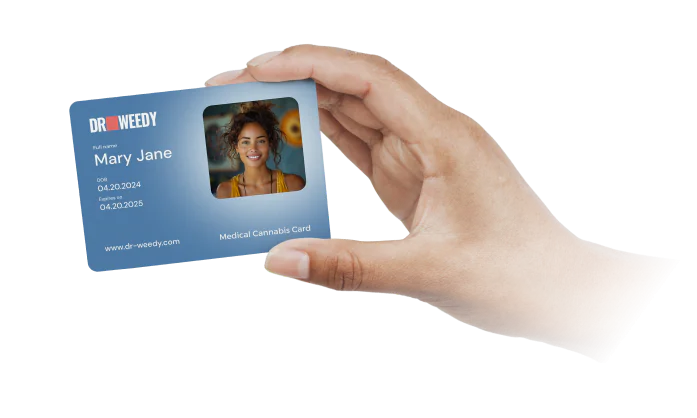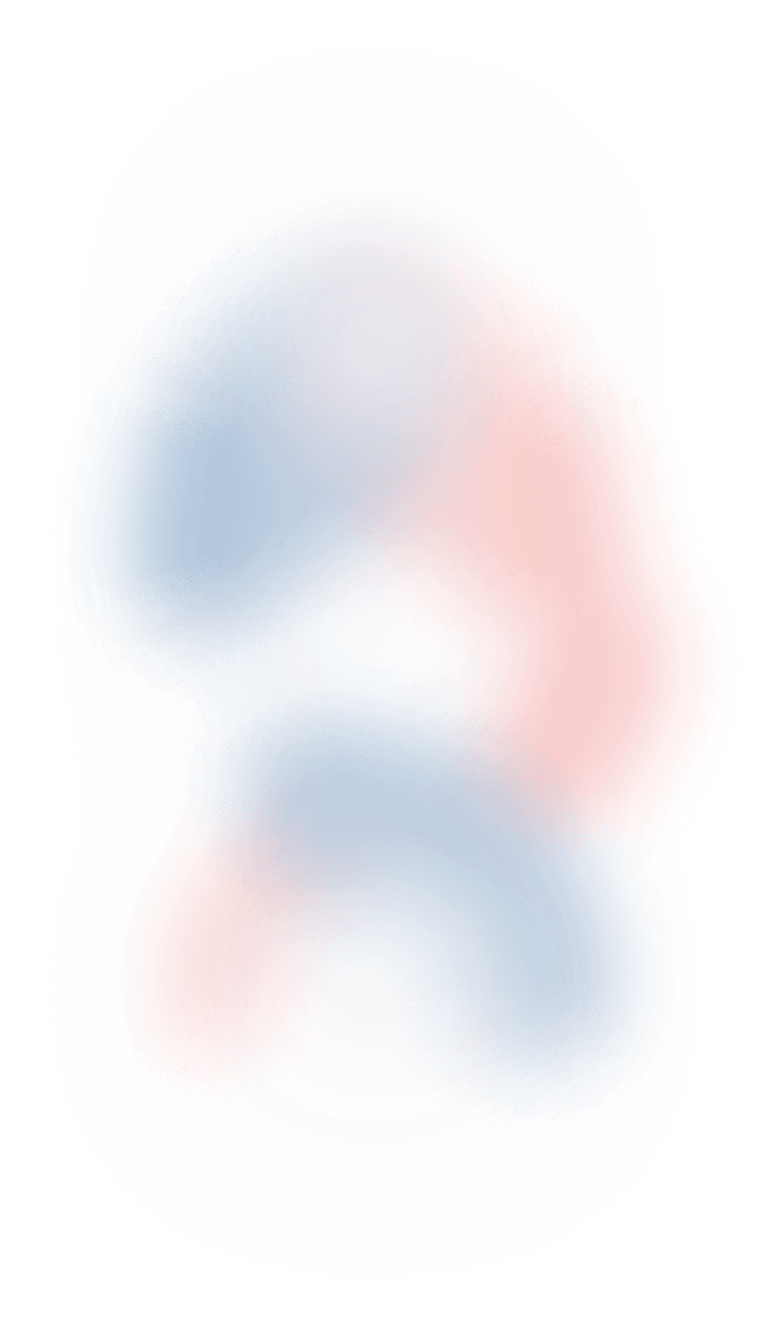Get your medical marijuana card in Pennsylvania online



More than 150,000 PA patients evaluated over 8 years


Benefits of getting a MMJ card in Pennsylvania

Legal marijuana access

Safe purchase and possession limit

No age limit

Legal protections

Get your PA medical cannabis card in 4 easy steps
Create a PA MMP Account through the Department of Health website: Adult Patient Registration.
Complete a short, confidential questionnaire and secure payment to initiate evaluation. Schedule a 15-minute virtual consultation with a qualified physician.
After approval, the physician certifies your condition to the Pennsylvania Medical Marijuana Registry. Log in as a returning user at the State Registry website and pay the $50 annual fee or see if you qualify for a no-cost ID card through government programs.
Allow 7 days for printing from the date you paid for your ID card and 14 days to receive it in the mail. Your card will be sent to the address you provided during registration.



Do I qualify?


Dr.Weedy prices are final
Prices for getting medical card in Pennsylvania
competitors
30+ state-licensed physicians at your service
Patient stories: cannabis therapy successes
Live emotions of our happy clients
«Hey everyone, I just want to give a big shout out to Dr. Weedy for doing such an amazing job of helping me get my medical marijuana card. You know, a lot of times you go to these different websites and it takes a very long time to get approved or get a recommendation. And with the help of Dr. Weedy, I was able to get approved very fast for my card. So if you guys are looking for a great evaluation that’s very fast and convenient for you, all you got to do is go to their website Dr. Weedy and they will definitely help you out and do a tremendous job for you just as they did for me. So, thanks again, guys, thank you Dr. Weedy, and I look forward to seeing your success. Full video»

Current cannabis laws in Pennsylvania
Access crucial insights on state requirements and laws regarding cannabis

Pennsylvania medical marijuana
laws - main info
Possession limits for medical cannabis patients in Pennsylvania
Qualified patients in Pennsylvania are allowed to possess a 90-day supply of medical cannabis products, as stipulated by state regulations. This supply is calculated based on individual doses and is designed to ensure users have uninterrupted access to their medication.
Here are the key points regarding possession limits:
- 90-Day Supply: A patient or caregiver may not possess more than a 90-day supply of individual doses at any given time.
- 30-Day Periods: During the last seven days of a 30-day period, cardholders have the option to obtain and possess a 90-day supply for the subsequent 30-day period. This provision ensures continuous access to cannabis.
- Renewal: Additional 90-day supplies can be provided for the duration of the authorized period on the identification card, unless a shorter period is indicated on the certification.
Forms of medical marijuana dispensed:
Marijuana in Pennsylvania can be dispensed in various forms, including:
- Pills
- Oils
- Topical forms (such as gels, creams, or ointments)
- Forms suitable for vaporization or nebulization (excluding dry leaf or plant form)
- Tinctures
- Liquids
Note: The dispensing of marijuana in dry leaf or plant form is strictly prohibited in Pennsylvania, and the possession of such form is not permitted under state law (PA Act 16 of 2016).
Cultivation and responsible use of medical cannabis in Pennsylvania
As of now, Pennsylvania strictly prohibits personal cannabis cultivation, even for medicinal purposes. The state mandates that all cannabis products must be obtained exclusively from authorized and regulated dispensaries.
It’s essential to be aware of the following regulations and consequences:
- No Personal Cultivation: Pennsylvania law unequivocally forbids individuals from cultivating cannabis plants, regardless of the intended medical use. This stringent prohibition applies even to those with a valid medical cannabis card.
- Penalties: Engaging in unauthorized cannabis cultivation, even a single plant, carries serious legal consequences. Violators may face substantial fines and the possibility of imprisonment.
Given these stringent regulations, it is imperative for medical cannabis patients in Pennsylvania to rely solely on licensed dispensaries for their cannabis needs and to adhere strictly to the state’s laws and regulations governing the responsible use of cannabis.
Caregiver responsibilities in Pennsylvania
A caregiver within the Pennsylvania medical marijuana program plays a crucial role as an individual authorized to procure marijuana on behalf of registered patients. It’s important to clarify that caregivers are not the medical practitioners who provide patient certifications. To serve as a caregiver, certain eligibility criteria and responsibilities must be met:
Eligibility Criteria:
To become a medical caregiver for cannabis in Pennsylvania, you must:
- Residency: Be a resident of Pennsylvania.
- Age: Be at least 21 years old unless authorized differently by the department.
- Identification: Possess a state-issued ID card that reflects your current address.
- Background Check: Successfully pass a criminal history check.
- Clean Record: Have no drug-related convictions within the last five years.
- Patient Designation: Be designated by a qualified individual who requires your assistance.
Additionally, you will need to provide the patient’s name as it appears in the Patient and Caregiver Registry, their ID number, and date of birth.
Steps to Become a Caregiver:
- Application: Submit an application to the Pennsylvania Department of Health, including a certification form completed by the client’s physician. This form confirms that the individual necessitates assistance in obtaining and administering medical cannabis.
- Background Check: As part of the application process, you will undergo a criminal history check.
- Identification Card: After submitting your application, anticipate a processing period of four to six weeks for approval. Once approved, you will be required to pay the designated fee to obtain a medical caregiver identification card from the Pennsylvania Department of Health. This card remains valid for one year and must be renewed annually.
By fulfilling these criteria and responsibilities, caregivers in Pennsylvania play a vital role in assisting patients in accessing and using medical cannabis for their health and well-being.
Medical cannabis for veterans in Pennsylvania - main info and rules
Pennsylvania recognizes the anticipated benefits of cannabis as an alternative treatment for veterans coping with various health conditions. Here, we provide essential information and regulations concerning the use of medical cannabis by veterans in the state:
- Legal Compliance: PA veterans, like all medical cannabis patients, are required to adhere to Pennsylvania state laws and regulations governing qualifying conditions, possession, transportation, and usage of cannabis. Staying informed about any updates or changes in these laws is crucial to ensure veterans’ uninterrupted access to medical cannabis.
- Department of Veterans Affairs Healthcare System: It’s important to understand that the Department of Veterans Affairs (VA) is a federal agency, and cannabis remains classified as a Schedule I controlled substance under federal law. Consequently, VA healthcare providers are unable to recommend or prescribe medical cannabis. However, veterans can seek healthcare services outside the VA system to obtain a physician’s recommendation for cannabis.
- Affordability and Discounts: Certain dispensaries and medical cannabis programs in Pennsylvania offer special discounts or financial assistance tailored to veterans, recognizing their service and healthcare requirements. Veterans are encouraged to inquire about these programs and discounts, making medical cannabis more accessible and cost-effective.
At Dr. Weedy, we are committed to supporting veterans in their pursuit of marijuana treatment. We deeply appreciate the sacrifices they have made for our nation. As part of our unwavering commitment to veterans, we offer special programs and discounts to enhance affordability and accessibility to medical cannabis. Our veteran initiatives encompass subsidized recommendation quotas, allowing veterans to obtain their medical cannabis certifications at reduced costs.
To avail of the veteran’s discount, simply click here.
Access to marijuana treatment for people with disabilities in Pennsylvania
Dr. Weedy recognizes the importance of ensuring equal access to medical cannabis treatment for individuals with disabilities in Pennsylvania. We are dedicated to providing a supportive and inclusive environment for all patients, including those with functional impairments. Here’s how we aim to make marijuana treatment accessible for this community in the Keystone State:
- Accessibility: Our online platform is designed with accessibility in mind, prioritizing user-friendliness for people with disabilities. We adhere to web accessibility standards, ensuring that our website is easy to navigate and that all users can complete the necessary steps to obtain their Pennsylvania medical marijuana recommendations.
- Remote Process: We understand that mobility can be a challenge for some individuals facing mobility issues. Therefore, we’ve made the entire evaluation process 100% remote. From the initial visit to our website to the final step of receiving your MMJ certification, you can complete it all from the comfort of your home. This eliminates the need for travel or in-person appointments, making the process convenient and accessible.
- Doctor’s Expertise: Our healthcare professionals are experienced and well-versed in the medical needs of patients with disabilities. They have a deep understanding of the potential advantages of medical marijuana for various conditions and can provide expert guidance tailored to your specific situation.
- Affordable Options: We offer pricing options designed to ensure that disabled individuals can access medical marijuana treatment without facing excessive financial burdens. Our objective is to make this crucial treatment option accessible to all who can benefit from it.
At Dr. Weedy, we are committed to breaking down barriers and facilitating access to medical cannabis treatment for individuals with disabilities in Pennsylvania. We believe that everyone should have the opportunity to explore the possible perks of marijuana in managing their health and well-being.
Medical marijuana reciprocity and access for non-residents in Pennsylvania
Pennsylvania does not currently have a medical marijuana reciprocity program. This means that individuals who hold medical marijuana cards from other states are not automatically granted the same privileges in Pennsylvania. Non-residents, even if they are valid medical marijuana users in their home state, are not legally allowed to purchase or use medical marijuana in Pennsylvania.
Diagnosis and medical marijuana treatment for PTSD, anxiety, and chronic pain in Pennsylvania
Pennsylvania recognizes the prospective gains of medical cannabis in addressing conditions such as PTSD, anxiety, and chronic pain. Here’s important information about the diagnosis and medical marijuana treatment for these conditions in the state:
- PTSD (Post-Traumatic Stress Disorder)
Individuals diagnosed with PTSD in Pennsylvania may be eligible for marijuana treatment. Symptoms of PTSD often include anxiety, flashbacks, and heightened stress responses. Medical cannabis may offer relief by interacting with the endocannabinoid system, potentially regulating mood and stress responses. To explore this treatment option, consult our qualified physician who can assess your condition and determine whether medical cannabis is a suitable choice for managing your PTSD symptoms.
- Anxiety Disorders
Anxiety disorders encompass various conditions, such as generalized anxiety disorder, social anxiety disorder, and panic disorder. In Pennsylvania, medical cannabis may be recommended to individuals experiencing severe symptoms of anxiety that have not responded well to conventional treatments. Specific compounds in cannabis may have anxiolytic effects, potentially alleviating anxiety symptoms. If you struggle with severe anxiety, consult with our knowledgeable physician to discuss the potential benefits and risks of cannabis as part of your treatment plan.
- Chronic Pain
Pennsylvania allows medical marijuana treatment for severe or intractable chronic pain. This category includes pain that persists despite traditional medical interventions. Many people with such conditions turn to medical cannabis as an alternative approach. Cannabinoids like THC and CBD can interact with pain receptors in the body, potentially reducing pain perception and inflammation. If you’re dealing with ongoing pain, consider consulting our physician experienced in medical cannabis treatments. They can evaluate your pain level and medical history to determine whether marijuana may provide effective relief.
Frequently Asked Questions
What documents do I need to provide for the application?
To apply for a medical marijuana card in Pennsylvania, you will typically need the following documents:
- Valid photo ID: Like a driver’s license or passport.
- Proof of Residency: A Pennsylvania driver’s license or state-issued ID card.
- Medical Records: Relevant medical records documenting your qualifying condition.
What types of medical marijuana products are available in Pennsylvania dispensaries after receiving a card?
In Pennsylvania, medical marijuana is available in six forms post-card issuance, each tailored for specific therapeutic needs:
–Pills/Capsules: These contain THC and CBD, offering relief from pain, inflammation, and nausea, with a slower onset but longer-lasting effects.
–Liquids/Tinctures: Potent extracts taken orally or under the tongue, useful for quick absorption and versatility in use, including vaporization.
–Topicals: Gels, creams, and ointments for localized pain relief and anti-inflammation, non-psychoactive as they don’t enter the bloodstream.
–Extracts: Including shatter, wax, oil, budder, and resin, these are inhaled or vaporized forms offering concentrated effects from specific plant molecules.
–Patches: Deliver cannabinoids like CBD, CBN, THC, and THCA through the skin for prolonged effects, suitable for consistent relief over time.
–Flower/Dry Leaf: Vaporized form of marijuana, containing a range of cannabinoids like THC and CBD, each with different health benefits.
How to get an mmj card in your city:
How to register as a caregiver in Pennsylvania?
To register as a caregiver in Pennsylvania, follow these steps:
- Determine Your Eligibility:
– Caregivers must be 21 years or older, unless authorized differently by the department.
– Eligible individuals include those designated by a patient; a parent, legal guardian, or spouse of a patient under 18; or designated by a parent, legal guardian, or spouse.
- Information Needed:
– To register, you need a valid Pennsylvania driver’s license or state-issued ID card.
– If the patient is already registered, you need their name, date of birth, and patient ID number.
- Select Caregiver Option During the Registration:
– Adult Patient Caregiver Registration: Registering for an adult already in the system.
– Caregiver Registering for an Existing Patient: Registering for a person already in the system but not visiting a dispensary.
– Caregiver Registering for a New Patient: Registering for an individual not yet in the system and not visiting a dispensary.
– DOH-Approved Caregiver Registration: Allows the Department of Health to share your contact information with clients in need of a caregiver.
- Complete the Registration Steps:
– Register on the official website https://www.pa.gov/cannabis/caregivers/).
– Undergo a criminal background check.
– Wait for an email with the background verification outcome.
– Pay for an ID card if approved as a caregiver.
- Association with a Patient:
– Before registering, obtain the patient’s ID number and date of birth.
– Enter this information on the registration screen.
– If already registered but not linked with the patient, they need to add you through the “Manage Caregivers” tab.
– Access the ‘Manage Patients’ tab in Your Caregiver Profile to view all associated patients.
– Caregivers may provide care for an unlimited number of people.








































